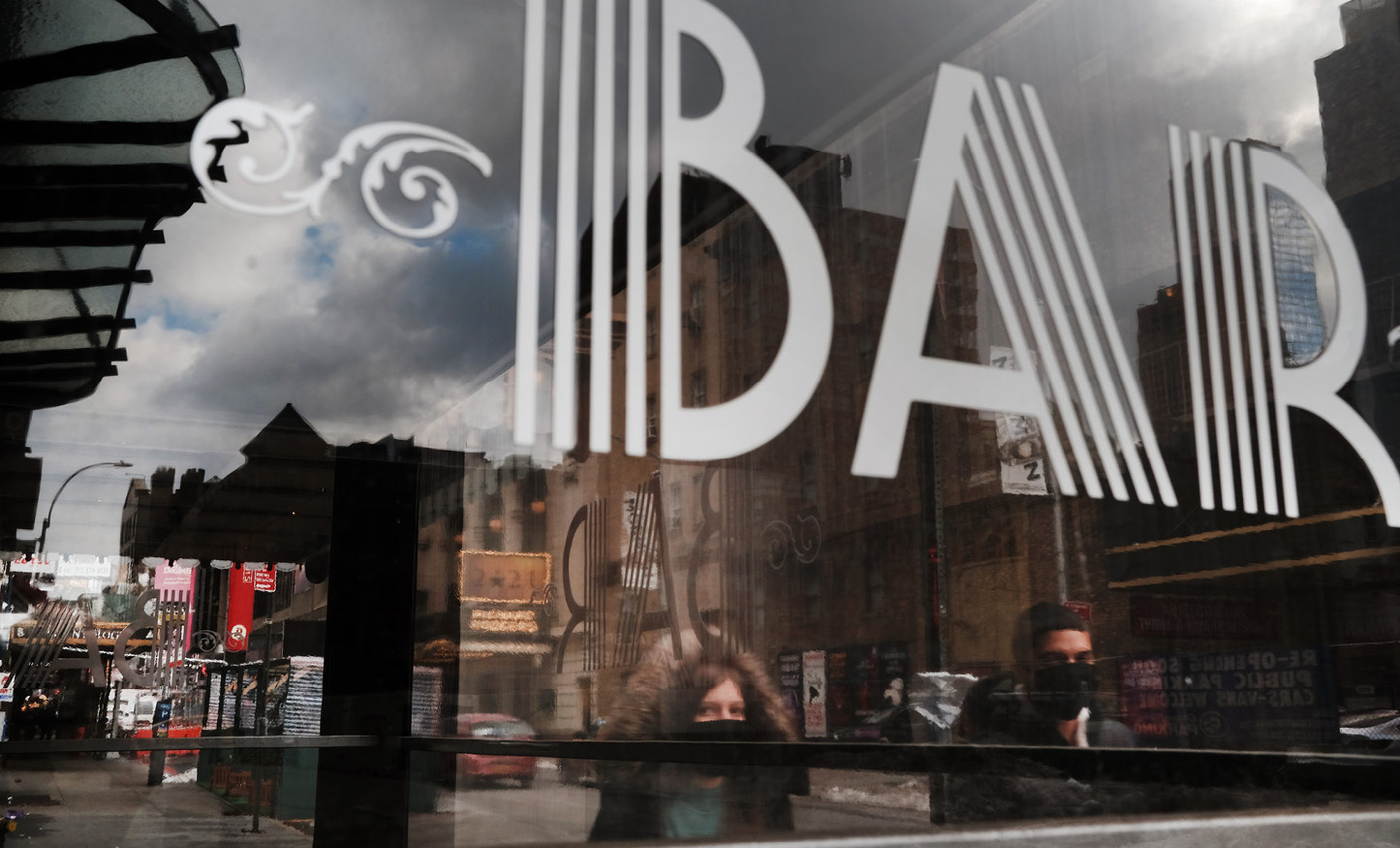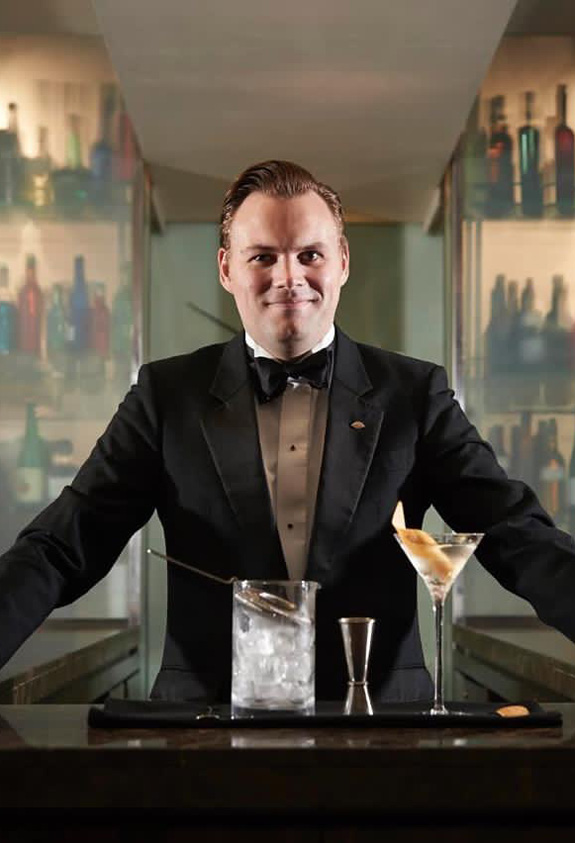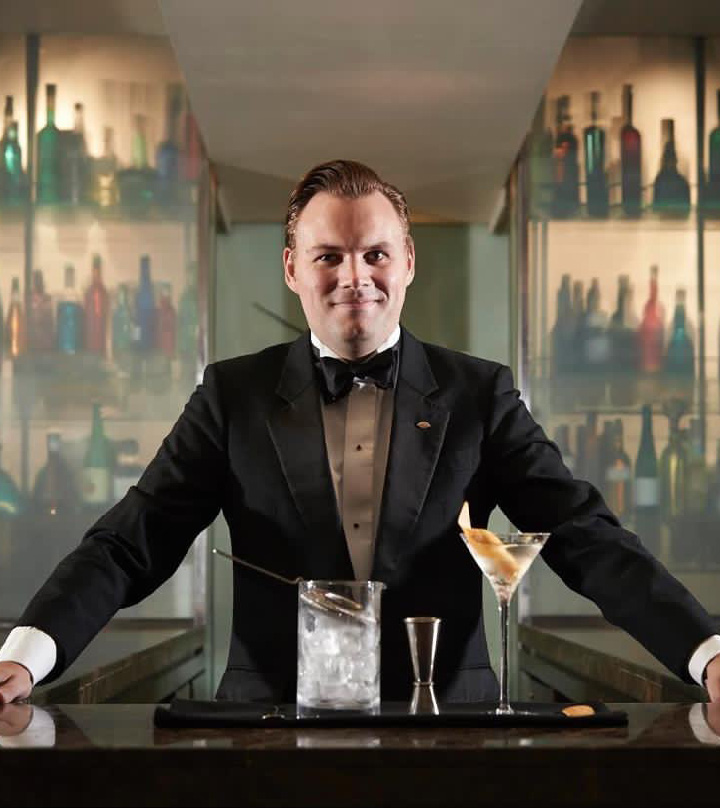


Glion alumnus Sebastian Löffler is currently F&B Operations Manager at Mandarin Oriental Hotel Group in New York… although for now he’s back home in his native Sweden, since Covid-19 has forced his hotel to temporarily close its doors. Sebastian reflects on his experiences of the pandemic; and in particular what it has taught him about leading effectively through a crisis.

That aside, as anyone who has worked there will tell you it’s also a buzzing, thrilling environment in which to be engaged in hospitality. One that proved impossible to resist for Sebastian Löffler, who jumped on a plane from London in 2016 to become F&B Manager at Mandarin Oriental New York.
It’s been a tough time for anyone trying to manage their way through the pandemic. But suspension of normal business is also an opportunity to reflect on what went well and what didn’t, in terms of minimizing the damaging effects on companies and employees.
With this in mind, Sebastian shared with us five of his own key learnings, to support our ongoing Covid recovery conversation. Here they are:
1) Keep talking
The events of early 2020 moved quickly and it was hard for any large-scale hospitality business to keep employees supplied with up-to-date information. Those that got in a better place with colleagues, and guests, were the ones who were quick to provide information and to outline the future – even if that meant admitting they didn’t have all the answers.
The lesson for us all is that we should communicate at every opportunity. Even a call once a week is not enough; use text messages or WhatsApp to fill in the gaps between formal sessions. When people are worried about their futures and haven’t heard anything for a month, then you have a bad situation developing.
2) Secure the know-how
As managers, do we have comprehensive knowledge of all the little operational details that colleagues sometimes keep only in their heads? Hopefully we won’t be in a future situation where we continually have to shut down hotels and restaurants temporarily; but through this experience I’ve learned a lot about what I need from my managers going forward, and how I structure my team, in terms of keeping the know-how in the building.

3) Be creative
For me, the companies that have done OK through this pandemic have been the ones who stuck their necks out and pushed the boundaries of what hospitality can be. In New York, the authorities were kind enough to loosen restrictions on alcohol licensing, so bars were able to organize home delivery services to keep the revenue coming in. We also saw restaurants doing meal kits for people to cook gourmet dishes at home, working with delivery services such as Door Dash and Uber Eats. Some opened pop-up grocery stores, to help sustain their produce suppliers.
4) Realize it’s not just about the guest
At the start of the pandemic every focus was on the guest. Cancelling bookings, getting people home. But in the United States today there are millions of people not working who previously had good jobs in hospitality.
We now have a challenge in this business, because as managers we can’t lead alone. We need people around us who can create 5* experiences for our guests. This pandemic has taught me that building a culture in which employees feel valued and well treated will be much more likely to bring them back to the industry once the world has opened up again. In my own case I have managers who will have been on furlough for a year by the time we reopen. It’s so important to look after them, so they feel safe with you and they are going to want to grow with you, because they can see the success you bring them.
5) Don’t start the blame game
It’s easy to fall into the blame game – blaming the government, the unfairness of restrictions, or whatever. But that will not generate positive sentiment among your employees. Better to reassure them that what they were doing before was successful, so when things get back to normal it will be successful again. I definitely had the most impact on changing employee sentiment by focusing on the positives in this way.
Hold your head up high and be positive, because your team will be looking to you and they will take their lead from you. Be creative, maybe offer some training if you can – do whatever you can to keep everything flowing.
Photo credits:
Main image: Spencer Platt/Getty
Mandarin Oriental frontage: Mike Pont/Getty
Launch your career in international hospitality
Our Bachelor’s in International Hospitality Business is your first-class ticket to a global career.

















